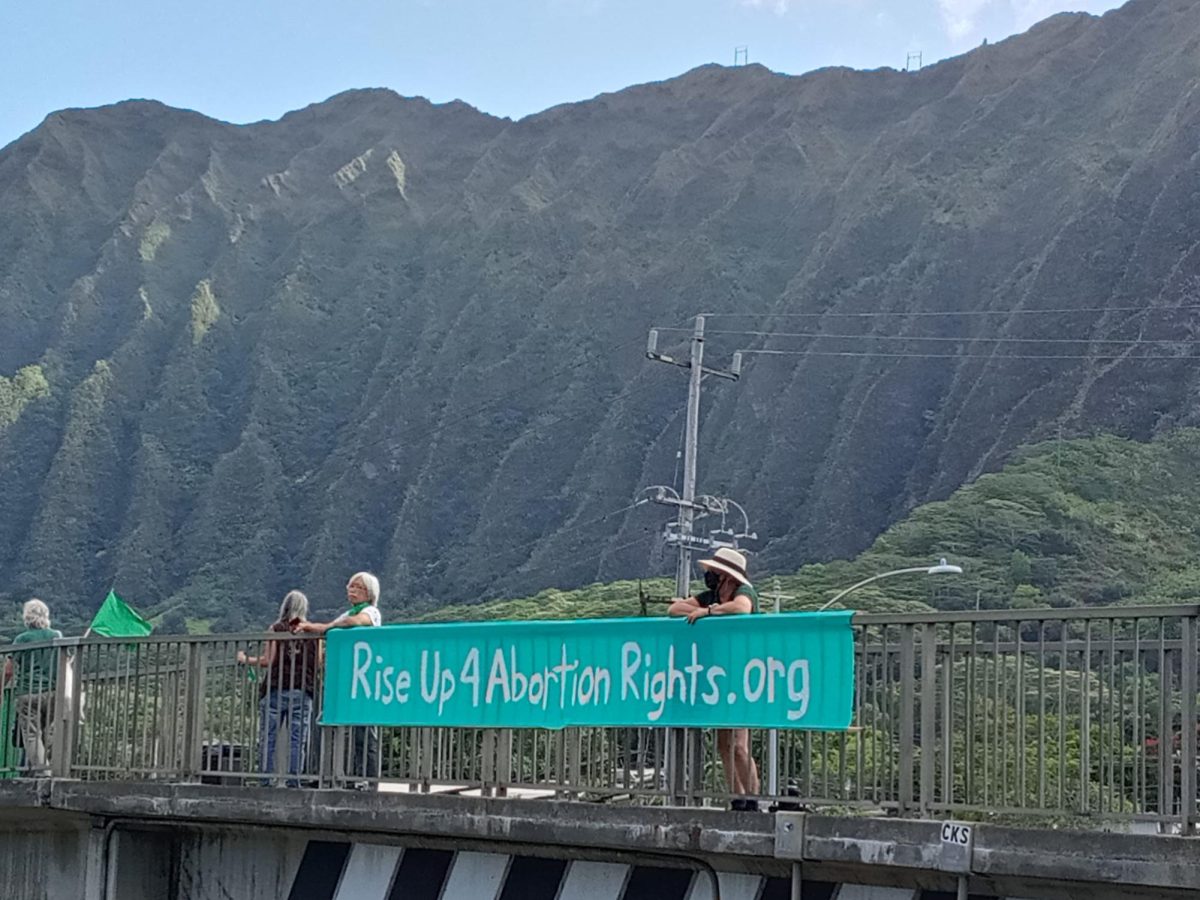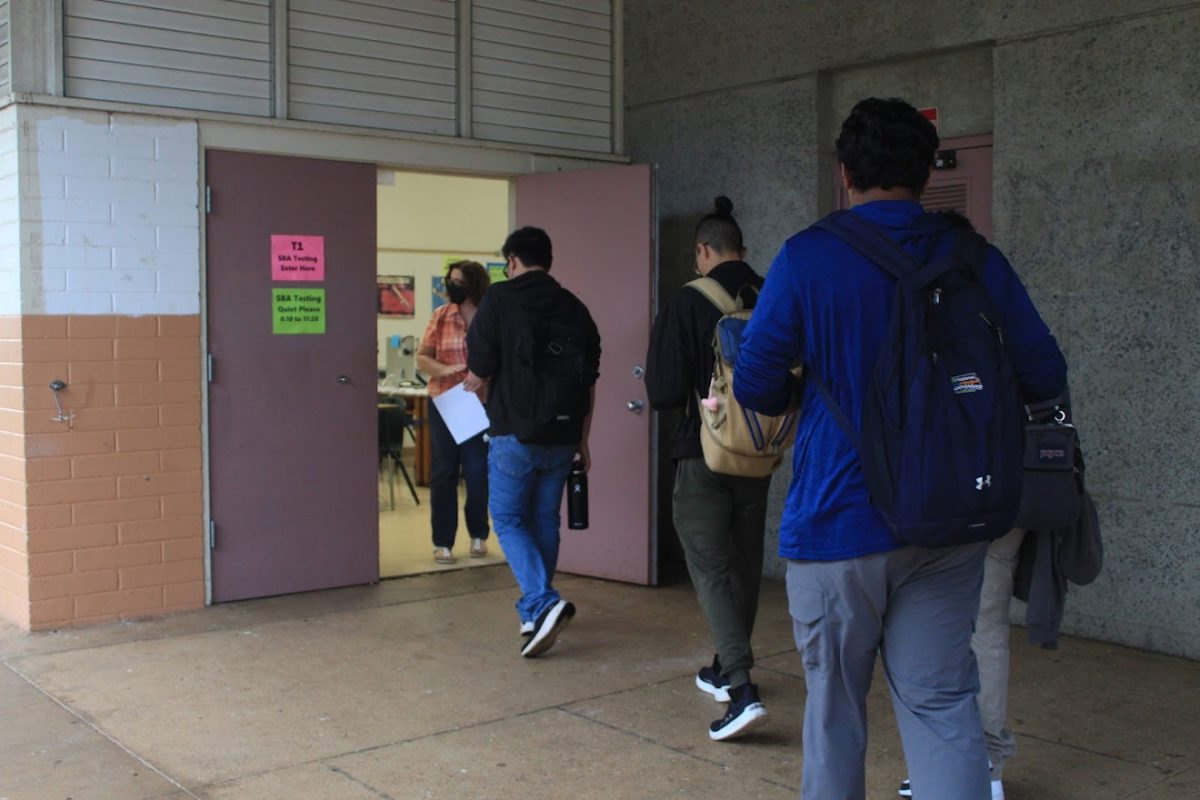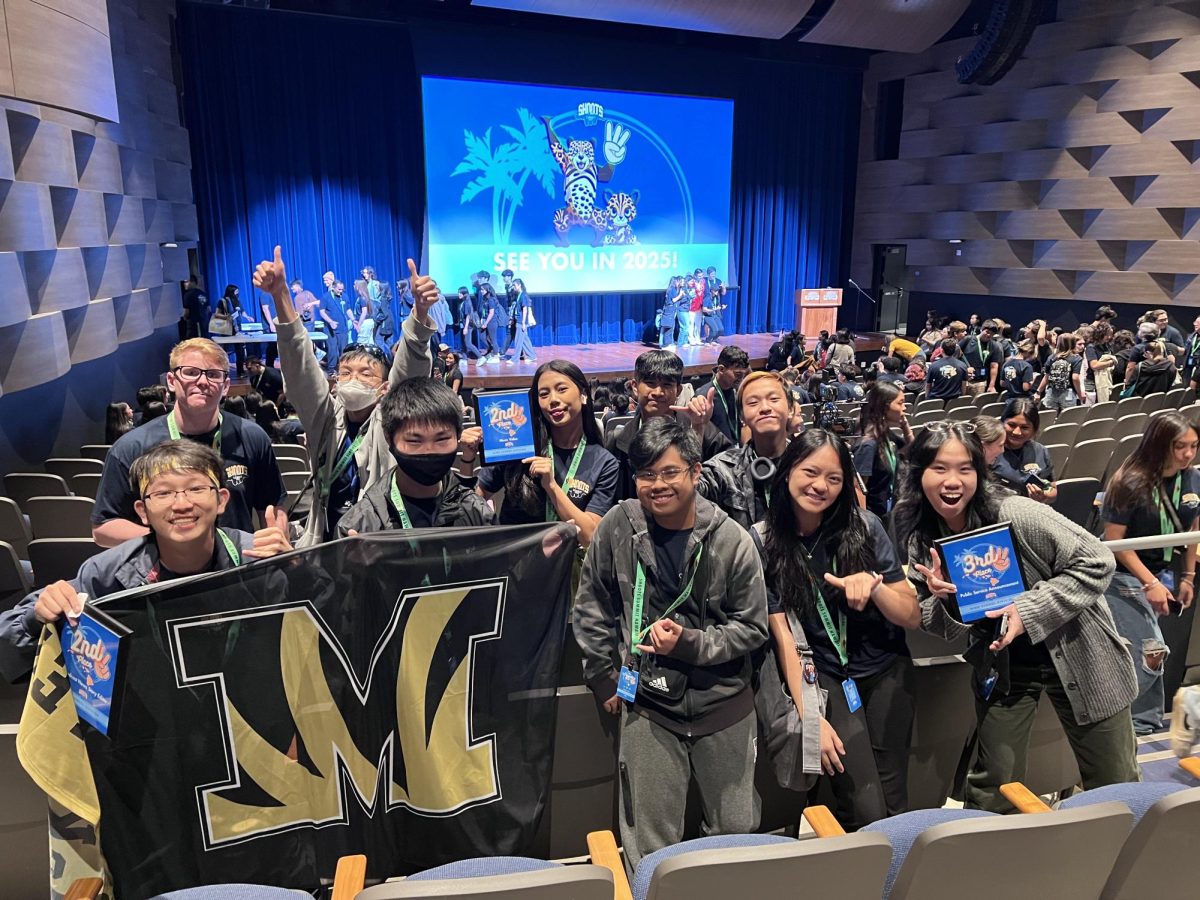High schoolers are at an age where they are becoming sexually active, where the possibility of getting pregnant or getting someone pregnant is higher. Reproductive freedom and abortion rights in the United States has been seen frequently on the media and news after the overturn of Roe v. Wade in June of 2022.
Roe v. Wade was essentially a privacy case in which the Supreme Court decided that the right to privacy implied in the 14th Amendment protected abortion as a fundamental right. However, even with this law came the government’s power to regulate or restrict abortion access depending on certain factors. Since its overturn, abortion laws have been up to the states. In Hawaii, a woman is able to access abortion until the fetus is viable, or able to survive outside of the womb, according to Abortion Finder. But now, with almost half of the states either fully banning or placing heavy restrictions on abortion, leaving Hawaii could mean different abortion laws.
“It was a realization that a lot of people had feared for years, especially with some of the more newly appointed Supreme Court justices with a more conservative slant,” Rajani Dhakhwa Morita, a social studies teacher at McKinley High School said. “It’s concerning that our right to privacy and our freedom to make private decisions has been jeopardized, if not actually taken away.
Abortion has been part of the full scope of reproductive healthcare, something that has been debated for decades, way before Roe v. Wade. According to The Cupola, in June 1914, the Woman Rebel, a magazine that purposefully defied the Comstock laws, first used the phrase “birth control” and first cited the existence of a birth control movement. The Comstock Laws criminalizing any use of the U.S. Postal Service to send any of the following items: obscenity, contraceptives, abortifacients, sex toys, or personal letters with any sexual content or information.
Makenna Murphy, a student teacher at McKinley High School said Roe being overturned was “a sad day in American history.”
“I thought we were going back in time,” Murphy said. “It was a huge backstep and undid all the work women had done for years.”
Her opinions regarding abortion rights reflect the message “my body, my choice.”
“Every woman should have the right to her own body and they should have the right to choose.” Murphy said. “If you personally wouldn’t have an abortion, that’s your decision. However, you do not get to dictate what happens to someone else’s body.”
In addition to the debate on individual choice, the overturning of Roe has caused concern about a rise in maternal mortality. Roe v. Wade reduced maternal mortality rates by 30%-40% by securing access to safe and legal abortions. Pre-Roe, in the 1950s and 60s, between 200,000 and 1.2 million women underwent illegal abortions each year in the U.S., most of the procedures done in unsafe conditions, according to Scientific America. At one point, illegal abortion accounted for an estimated 18% of all reported pregnancy related deaths, the actual number most likely being much higher but many deaths were attributed to other causes.
Results from a survey held by Kaiser Family Foundation, an independent health policy research source, revealed that 64% of all obstetricians and gynecologists believe that the ruling has worsened overall pregnancy mortality. These OBGYNs predict the overturning of Roe v. Wade will increase maternal deaths by 24%.
“They’re not getting rid of abortions, they are getting rid of safe abortions. Because even if they try to get rid of them, women are resilient,” Murphy said.
Shelby Johnson, McKinley High School’s new school nurse, said the overturning of Roe v. Wade would impact her friends and family members living in Texas.
“It saddens me that if a loved one of mine needed access to abortion, they would need to fly somewhere and get it done. It shouldn’t be that way,” Johnson said.
Texas is just one state that has stronger restrictions on abortion. In Texas, almost all abortions are banned unless the doctor determines the pregnancy is at all life-threatening, according to the Texas Tribune. The state of Texas is not alone in their efforts. Nearly half of the states in the U.S. have made abortion access more difficult after Roe v. Wade.
A common misconception is that the overturn of Roe meant an outright abortion ban; the ruling simply turned the decision back to the states.
The question of federal versus states rights has been an ongoing controversy, not only regarding reproductive rights, but in similar cases with the Civil Rights movement. When the Civil Rights Act passed 50 years ago, views were firmly divided about whether the federal government was overstepping on states’ rights, according to the Saturday Evening Post. Many states wanted to keep segregation laws. Many senators believed these issues were better resolved at a local or state level.
But the local level, as the two-time Pulitzer Prize winner Anthony Lewis put it, “was precisely where the problem lay.”
Lewis said when the states were left on their own to handle race relations, “the result was massive inequality, injustice, and cruelty that shocked the conscience of this nation.” It was decided the U.S. could not be a place where black people in certain states had less rights than those in others.
Getting an out-of-state abortion is often what women are told to do as a solution to their problem. However, flying out-of-state is not an option for millions of women across the U.S.
Increasing restrictions and bans on reproductive care impose a significant physical and mental burden seen through this generation. However, the abortion bans cause disproportionate harm for women and women of color. More than 60% of those who seek abortions are people of color, and about half of them live below the federal poverty line, according to the Guttmacher Institute, a reproductive health research and policy group.
Due to factors such as lower housing costs, many people of color live in more southern parts of the country, facing the brunt of negative impacts following the Supreme Court’s overturning of Roe v. Wade, according to the Guttmacher Institute.
“There’s so many things like access to food, access to living wage, access to insurance, your race, your gender, your ability to make money for your family,” said Oriaku Njoku, a reproductive rights activist in Georgia.
A recent court ruling happened in Alabama regarding IVF treatments. IVF is now outlawed in the state of Alabama as they equate embryos with children. Not only did they outlaw IVF in Alabama, they incorporated primarily religious rhetoric into their ruling. Chief Justice Tom Parker cited arguments from multiple platforms, all leading to one source for the court’s judgment: God. He cites scripture nearly two dozen times in the ruling on embryos.
Not unlike many other court rulings regarding reproductive rights, religion has been used as reasoning to rule against it. These actions completely do away with the very first freedom guaranteed by the first amendment: Congress shall make no law respecting an establishment of religion,” prohibiting the government from creating an official religion or favoring one religion (or nonreligion) over another.
“In blatant terms, I thought it was disgusting that politicians think that they have the right over our bodies and use religion to justify it.” Murphy said.
A common misconception that further stigmatizes reproductive resources is that the use of these products causes women negative psychological effects. According to the American Psychological Association, this could not be further from the truth, as 50 years of research shows that having an abortion is not linked to mental health problems but restricting access to safe, legal abortions is. In a landmark study of more than 1000 women across 21 states, those who were allowed to obtain an abortion were not more likely to report negative emotions or mental health systems.
“It’s important for folks to know that abortion does not cause mental health problems,” said Debra Mollen, PhD, a professor of counseling psychology at Texas Woman’s University, who studies abortion and reproductive rights. “What’s harmful are the stigmas surrounding abortion, the lack of knowledge about it, and the lack of access.”
Social studies teacher Morita, said growing up in a country, especially here in Hawaii, with access to these long-held healthcare options created a greater sense of confidence and security to be able to make informed decisions with medical professionals.
“We are so fortunate to live in Hawai’i where students and people have different options available to them,” she said.
Despite that being one of the many positives about living in Hawai’i, it often forces people to wonder where Hawai’i activists for abortion rights find their conviction in continuing to fight for them. What is their call to action when Hawai’i doesn’t have those problems?
Abortion Rights activist and Refuse Fascism organizer Liz Rees said everyone should be frightened.
“Even though Hawaii does still have safe, legal abortion, the goal of the anti-abortion movement is to outlaw abortion nationwide, a goal which they’ve made very clear,” Rees said.
“I am outraged from watching the horrible things that are happening state by state, endangering women’s lives and forcing women to be mothers,” she said.
A survey of 276 McKinley students found 48% have some to a lot of knowledge of current abortion laws.
“I am inspired by those students who try to become informed, have healthy discussions, and are fighting for the rights for not just themselves, but for future generations,” Morita said.
“I hope this generation and the younger generation will see that there are fights that still need to be fought,” she said.












